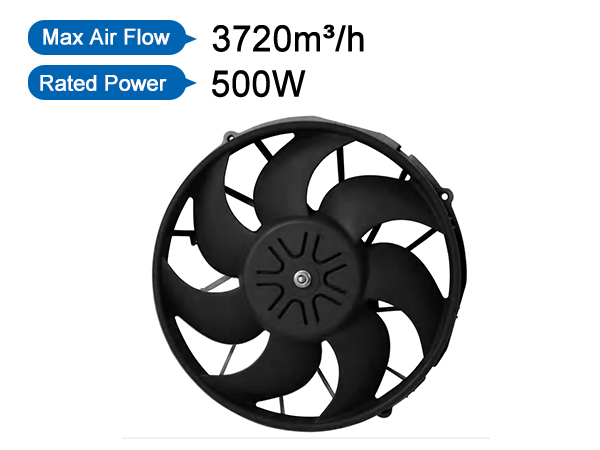Automotive fans are an indispensable part of a vehicle's cooling system, helping to dissipate heat from the engine and other critical components by increasing air flow. As technology has advanced, automotive fans have evolved from simple mechanical fans to electronically controlled smart fans. This article discusses different types of automotive fans and their specific uses in vehicles.

Mechanical Fans
1. Fixed Blade Fans
Fixed blade fans are the earliest type of fans, usually mounted in front of the engine and driven directly by the engine belt. They are characterized by a simple structure, low cost, but relatively low efficiency and higher load on the engine.
2. Variable Blade Angle Fans
These fans can adjust the angle of the blades automatically according to the engine's temperature to optimize air flow and cooling efficiency. Although they are slightly more expensive, they can significantly improve cooling efficiency and reduce engine wear.
Electronic Controlled Fans
1. Electronic Controlled Silicone Clutch Fan
This type of fan uses a silicone clutch to control the start and stop of the fan. When the engine temperature rises, the silicone thins, and the fan starts to rotate; when the temperature drops, the silicone thickens, and the fan stops. This fan can reduce the load on the engine at low temperatures and improve fuel efficiency.
2. Electronic Pulse Width Modulation (PWM) Fans
PWM fans control the fan speed through an electronic signal, allowing for more precise temperature control. These fans are usually integrated with the engine control unit (ECU) and automatically adjust the fan speed based on the actual working condition of the engine.
Intelligent Fan Systems
1. Multi-speed Electronic Fans
Multi-speed electronic fans can operate at different speeds according to cooling needs. These fans typically have multiple preset speed levels and can automatically switch between them based on the engine temperature and coolant temperature.
2. Intelligent Temperature Sensing Fans
These fans are equipped with temperature sensors that can monitor the temperature of the engine and other components in real-time and control the start and stop of the fan, as well as the adjustment of fan speed through intelligent algorithms.
Application scenarios of automotive fans
1.Engine Cooling: All types of fans can be used for engine cooling to ensure that the engine operates at the optimal temperature.
2.Battery Cooling: With the popularity of electric vehicles, battery cooling fans have also become increasingly important to prevent battery overheating.
3.Air Conditioning System: Fans are used in air conditioning systems to increase air flow and improve cooling or heating efficiency.
4.Brake System Cooling: The brake systems of high-performance vehicles may require additional cooling to prevent brake overheating.
Address:No.30, Dapu lndustrial Street, Changping, Dongguan, Guangdong, China
Tel: +86-186 7628 8117